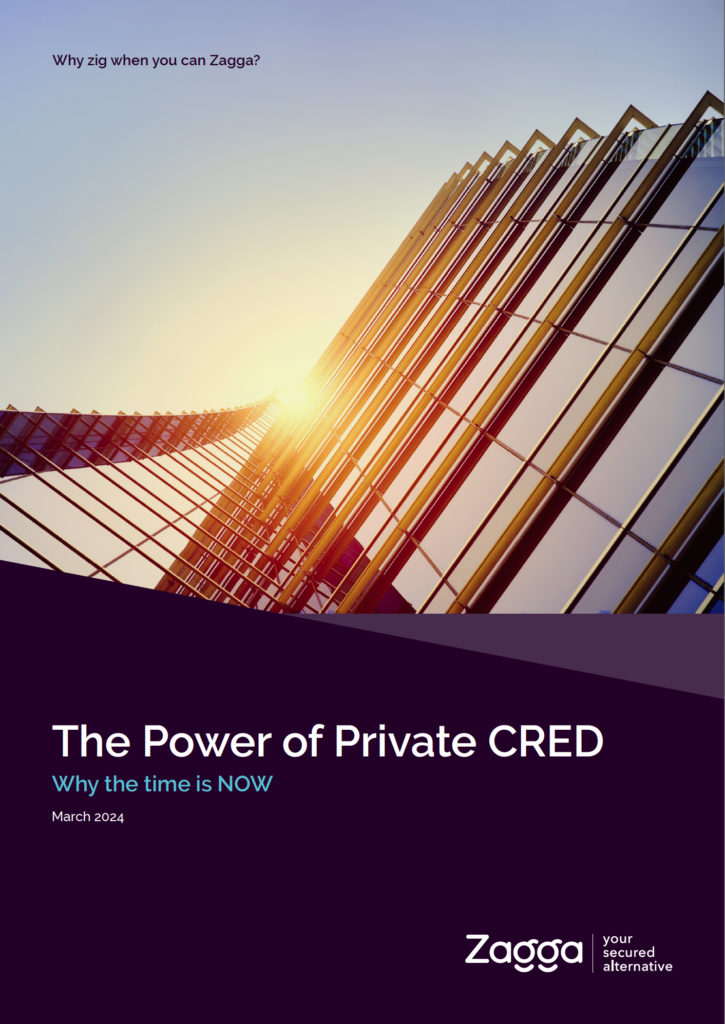Providing a solution to our housing shortage
The Power of Private CRED:
Why the time is NOW
Four years since the biggest economic and social shock in a century began...the world now looks significantly different.
In the four years since COVID-19 shut down the world, a new and different investment landscape has emerged. It has broken definitively with the decade and half before it, and reshaped investors’ expectations and strategies.
Investors are now seeking a sense of direction in otherwise volatile markets, turning to assets like infrastructure, real estate, and corporate debt.





Commercial real estate beyond housing
As the Australian population booms, the demand for housing is huge, yet housing supply remains insufficient, and prices continue to climb.
Beyond housing, a range of commercial developments are in demand, from industrial warehouses that fuel e-commerce, through to the childcare, healthcare and retail centres that support this growing population.
It’s against this background that Commercial Real Estate Debt (CRED) has emerged as a popular investment option providing investors with access to a more predictable income stream, with attractive returns and lower volatility. This comes at a time when the demand for housing is huge – as the Australian population booms, housing supply remains insufficient, and prices continue to climb.
The Power of Private CRED: Why the time is NOW
Private debt investors are playing a growing role in addressing the housing crisis in Australia, as they provide an additional source of much-needed capital to housing developers.
The rise of CRED comes amid a global shift towards private debt as an asset class, with global private debt assets under management expected to almost double between 2022 and 20281. Our latest white paper explores how private lenders can provide a differentiated offering from banks.
“With strict capital requirements and strong market dominance, Australia’s banks have less incentive to ‘go the extra mile’ when assessing commercial real estate borrowers. If a property developer or asset owner has more complex or ‘out of the box’ borrowing needs, the private lending market can be more suited to assessing the specific risk profile and structuring a deal appropriately,”
Alan Greenstein, Zagga CEO & Co-Founder
This latest white paper outlines the economic and market trends driving the growth of CRED in Australia and explains why investors may benefit from the CRED asset class as a source of predictable income, capital preservation and portfolio diversification.
- Prequin media release: Industry growth softening as global alternatives market AUM to reach $24.5tn by 2028
Download our latest white paper to find out more

The benefits of CRED through Zagga
Portfolio diversification
Investing across different asset classes is the key to building a broadly diversified portfolio.
Capital preservation
First mortgage security and capped LVR provides repayment priority and ‘equity buffer’ to mitigate against loss of capital.
Determinable income
Receive regular cashflow for the duration of the loan term.
Learn more

Unpacking the benefits of alternative real estate investments: A powerful tool for income-focussed investors
In the currently inflationary environment, individuals are rightfully seeking avenues that can offer stability in volatile markets, portfolio diversification and capital preservation opportunities as well as a hedge against rising

The power of CRED: Can commercial real estate debt provide a solution to the housing shortage?
Commercial Real Estate Debt (CRED) plays a pivotal role in the world of real estate investment. It’s a financial instrument that allows investors to participate in the property market through

Understanding the capital stack: A comprehensive guide for all commercial real estate investors
The Capital Stack: A comprehensive guide for all Real Estate Investors. The importance of understanding both sides of the real estate coin.

Why do private lending and non-bank lending exist?
Why is there a market for private lending and non-bank lending in Australia? Who is it for and what are the risks of private and non-bank lending?

The dynamics of private debt investing:
Providing a defensive investment option for income-focussed investors
Zagga explains the mechanics of this alternative asset class, which can serve as a defensive investment option for income-focussed investors.

Investing in alternative assets: Resetting asset allocations in a post-COVID world
Over the past four years since COVID, alternative investing has undergone a noteworthy expansion, particularly within private portfolios. This blog aims to delve into the democratisation of access for investors
